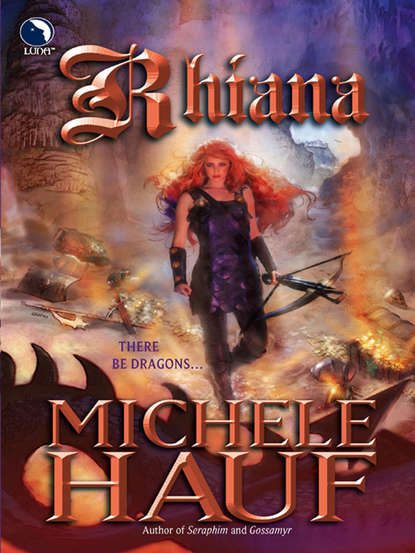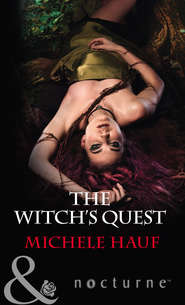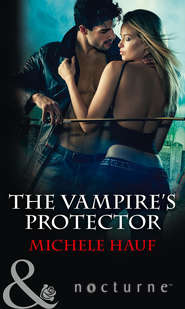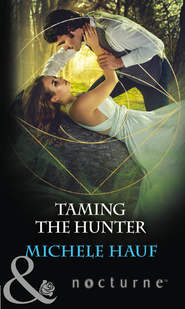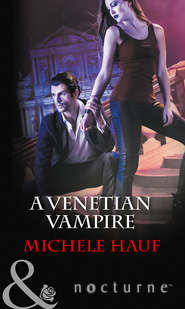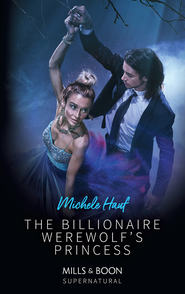По всем вопросам обращайтесь на: info@litportal.ru
(©) 2003-2025.
✖
Rhiana
Автор
Год написания книги
2019
Настройки чтения
Размер шрифта
Высота строк
Поля
Avoiding the drawbridge that crossed to St. Rénan’s barbican and main entrance gates, Rhiana skipped along the curtain wall to the north entrance, close to where the artillery stored dusty trebuchets and long-forgotten cannonballs. It was rarely used, for siege and battle were nonexistent.
A narrow plank, no wider than two fists, stretched across the dry, yet deep, moat, attracting only the most deft and balanced.
Steadying herself with but one outstretched arm, Rhiana danced across the wobbly plank. The scaled armor clicked softly and her mail chausses chinged. The sound of mail in motion made her smile. It signified all things chivalrous and adventurous to her. Halfway across she lunged into a bounce. The plank wobbled, digging up plumes of dry earth at either end. Lifting one foot out before her, Rhiana performed another bounce, landed her foot and skipped quickly to ground and the thick iron door.
She glanced back at the expanse of moat she’d crossed. A satisfied nod followed. Every opportunity to danger must be met.
Rudolph manned the barbican in the early morn, but his watch didn’t start until prime, so Rhiana had coerced him to guard this door. Rudolph was a lifelong friend and fellow cohort in today’s mission, for ’twas his brother Jean Claude who had been snatched from his very boots.
A double rap to the thick iron door with the heel of her crossbow, was followed by Rudolph’s husky, “Who goes there?”
The lanky young man always tried to lower his voice and speak slowly, as Rhiana had suggested would make him sound more imposing.
“Fire chaser,” Rhiana replied, the previously decided password. It was a nickname only Rudolph and Paul used, yet Rudolph was not privy to her most exotic secrets, as was her stepfather.
A blinking eyeball peered through the squint hole. The door opened and an arm lashed out to grip her by the wrist and tug her inside the battlement walls. Slammed against the closing door, Rhiana smirked at Rudolph’s theatrics.
With a scatter of blonde hair poking out from beneath his tight leather skullcap, he glared his best glare at her, then, with a sniff and a nod, stepped back, assuming modest nonchalance. “My lady.”
“Rudolph.” She chuckled and tugged unconsciously at the wool cloak. He did not know what she wore—or did not wear—beneath. “Do you not recognize my voice, that you must every time treat me as a possible intruder?”
“It is my task, my lady, to protect the village from impostors and brigands.”
When they were children he’d once accused her of pressing him to always play the knight when he much preferred to be a minstrel or village fool. Mayhap their play battles had some influence in his chosen profession of guard, or so Rhiana liked to believe.
“You serve Lord Guiscard well with your astute attention to detail.”
“Think you?”
“Indeed.”
Pleased with the compliment, Rudolph bowed in affirmation. Then with a nervous tug of his cap, which never did cover his overlarge ears, he grew more serious. “Any dragons?” he wondered.
“One less, thanks be to my trusty crossbow.”
“My lady, you are a gem!” Eyes stretching up the battlement wall to her side, Rudolph said with less enthusiasm, “If only you had been near when Jean Claude was taken.”
“Rudolph.” She clamped a palm upon his shoulder. Wheat dust smoked out from his brown tunic; he spent his nights romancing the miller’s daughter in the shadows of the flour mill. “Your brother was a benevolent man, ever eager to set aside what he was doing to aid, be it building or chopping or even singing during the village’s frequents fêtes. There is no doubt, in my heart, Jean Claude sings with the angels this day.”
“You are ever kind. I just…keep wondering how awful it must feel to be snatched up in a dragon’s maw.”
A thought Rhiana had had many a time. It was what had kept her alert and deft in the face of danger.
Rudolph stomped a boot upon the packed dirt ground. “Forgive me, I am well and fine. No tears, no tears.”
Sniffing, he resumed a defensive stance, arms crossed over his chest, and a guardlike frown upon his face. A familiar pose, for Rhiana had often pushed him to tears with her teasing. Because, most certainly, girls were better than boys.
“Thank you, Rudolph. I continue to rely upon your discretion.”
“But wait!” He blocked her leave with a dancing step to the right. “You said one less. What does that mean? One less? Less than more?” His voice warbled. “Be there more…dragons?”
“Shh, Rudolph, you’ll wake curious ears.” They both looked down the aisle of houses that snaked along the battlement walls. But a strip of sunlight glowed upon the slate rooftops. “I am not positive, but I think there is another.”
“Another,” he panted out. Straining to keep his voice to a whisper, he muttered, “Go back! Kill it, fire chaser! Do not let this day pass without banishing hell’s evil. It will continue to stalk our village!”
“Rudolph.” Rhiana sighed.
Should she have remained? Walked deep into the darkness of the cave and explored, seeking the other dragon?
No, the other had slept surely. Else, would it not have flown out to avenge its mate’s death? She had sensed no immediate danger. And what if it had been male, protecting a newling? She did not kill indiscriminately.
“I am on it, you can trust me.”
“Girls are better than boys,” he tried with a teasing lilt to the statement.
She winked and gave him a quick hug, then strode past him and into the narrow back alleys twisting about behind St. Rénan’s strip of artillery and armory shops. The buildings were constructed of timber posts and beams, but overlaid by slate or fieldstone. A decades-old edict declared all buildings must be of stone and all roofs of slate or tile. Best defense for a village oft ravaged by flame.
A cock again crowed the morning and dogs yipped in response. The delicious smell of baking bread unearthed a ridiculous hunger in Rhiana’s belly. Dragon slaying was hard work and required a hearty meal. She must to home to catch the last bits of Odette’s breakfast.
A twig rolled off an overhead rooftop and tapped her on the shoulder. Must be from a bird. But yet—she paused and searched the sky. One must never become complacent. So many noises in this village forged of stone and earth and as little wood as possible. She spied a dash of gray skirts.
“Mother?”
Rhiana skipped around and hid behind a tightly woven wattle arbor. Her mother made her way to the castle kitchen. Lydia walked a swift pace, and kept looking over her shoulder. As if she thought she was being followed. Strange.
Rhiana scanned the area. No one else out so early. Hmm…
Her mother had been different the past fortnight. Avoiding Rhiana more than usual. She was most brisk with their conversations. ’Twas almost as if Rhiana had done something to affront Lydia. But she did not know how to ask if there was a problem.
Lydia’s dour gray skirts swept out of view and behind a wall of hornbeam.
Rhiana sighed. “Something is amiss with her.”
As she walked onward, the clangs of the armourer’s hammer sang out like a childhood lullaby. Truly, such racket was lullaby matter to her. Since she was very young, Rhiana had spent her days toddling about Paul Tassot’s legs, asking him questions about every step in the process of creating armor, playing with the old yellow mongrel that slept beneath the stone cooling tank, thriving in the atmosphere of the shop.
The song of the hammer beat out a rhythm in her blood. Hard metals being coaxed into smooth, elegant curves, and blades that could kill with but a slice? How exciting! The red-hot flames and the glow of heated iron? Mesmerizing. Wherever there was fire, Rhiana felt soothing comfort. And the exquisite reassurance of gold, on the rare occasions Paul worked the supple metal to a fine sheet to leaf armor, ever beckoned.
Rhiana slipped into the shop and padded across the swept stone floor. The armory was circular, the south half sporting the brazier and works in progress. The north half was set up with a massive oak table for detail and leatherwork.
Bent over the flame, Paul concentrated on a curve of metal heated to vibrant amber. Paul Tassot was Rhiana’s mother’s husband. He was not her father, but had married Lydia when Rhiana was three.
Rhiana did not know her real father. For all purposes, a man had been in her life from the time of her birth until she was two. One Jean Cesar Ulrich Villon III; he was not her father either, though he had been married to her mother. Villon had abandoned her and her mother without reason or word. Lydia had cried for a se’ennight following. Even so small, Rhiana had wondered would her mother’s tears flood their home and sweep them both out to the sea, never again to be found, and so far away from flame and the family she loved.
As she grew older, many questions busied Rhiana’s thoughts. But when asked, Lydia Tassot would not speak of Rhiana’s origins. Rhiana suspected her mother must have been violated, or, in her more lusty imagination, she wondered had her mother an affair with a powerful lord or a fancy traveling courtier.
Either way, Rhiana had taken to Paul Tassot, who had been a mainstay in her life for twenty years. Just riding the end of his fifth decade, he possessed kind blue eyes that never looked upon Rhiana with the exasperated frustration Lydia’s eyes often held. And he was supportive of her quest. When Lydia scoffed at Rhiana taking off with a slayer to hone her skills, upon her return, Paul would question her every lesson with great fascination. What is he teaching you? Do you feel confident? How can I help? And under his breath—touch any flame this day?
Paul looked up from his task. “Ah!”





